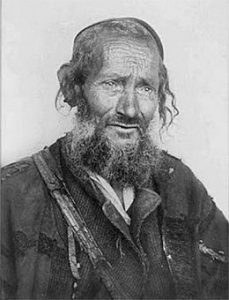 Many contemporary historians agree with the biblical account on one point: Pharaonic Egypt also experienced periods of monotheism. In the Torah this is presented to the genesis of the people of Israel, through the accounts of Abraham (Gen 12) and Joseph, who had remarkable encounters with the Egyptian civilization of the Pharaohs. In our Parshah of Miqetz, (Gen. 41) we see Joseph establishing laws in the kingdom of Egypt, among which those relating to property and taxation, from which he exempts the priests. The priests of Egypt, who were also scribes, were indeed exempt from taxes in the law of Egyptian monarchies. As Rabbi Elie Benamozegh saw, it is necessary to have a minimum of knowledge of the Egyptian context to grasp certain socio-linguistic elements of the text of the Hebrew Bible. Joseph’s story tells us that the Egyptian context is familiar to Hebrew culture, and his account reveals this familiarity to us, not from a critical angle, as in Moses’ story, but here from an angle of respect and achievement. . The critical angle will be defined as “a new king who did not know Joseph” (Exodus 1, 8).
Many contemporary historians agree with the biblical account on one point: Pharaonic Egypt also experienced periods of monotheism. In the Torah this is presented to the genesis of the people of Israel, through the accounts of Abraham (Gen 12) and Joseph, who had remarkable encounters with the Egyptian civilization of the Pharaohs. In our Parshah of Miqetz, (Gen. 41) we see Joseph establishing laws in the kingdom of Egypt, among which those relating to property and taxation, from which he exempts the priests. The priests of Egypt, who were also scribes, were indeed exempt from taxes in the law of Egyptian monarchies. As Rabbi Elie Benamozegh saw, it is necessary to have a minimum of knowledge of the Egyptian context to grasp certain socio-linguistic elements of the text of the Hebrew Bible. Joseph’s story tells us that the Egyptian context is familiar to Hebrew culture, and his account reveals this familiarity to us, not from a critical angle, as in Moses’ story, but here from an angle of respect and achievement. . The critical angle will be defined as “a new king who did not know Joseph” (Exodus 1, 8).
For Egyptian historians, it is historical characters such as Akhenaten, which represent an emergence of monotheism in Egyptian cosmogony. However, the comparative study of religions was in its infancy when these theories emerged. What has come to be called monotheism in the modern world is a consensus, built up over time, that may have little to do with conceptions of ancient cultures. In the Torah the first words Joseph said to Pharaoh are: “HaElohim Ya’ane And Shelom Phar’oh”, “Almighty answers for the peace of Pharaoh” (Gen. 41:16). Is the word used for Gd here based on any theological convention?
Should Pharaoh understand by this the One Gd of Abraham Isaac and Jacob, or what corresponds to this belief in his own culture?We see in a later episode of the Hebrew Bible another Pharaoh Neco, who changes the name of the king of Israel from Elyaqim to Yehoyaqim (Kings 2, 23). This name change is significant because it signifies on the part of Pharaoh a direct knowledge of Hebrew theology. Another point of convergence between the two cultures is that each believed in the divine origin of their alphabet.
Hieroglyphics means “Holy Letters, or Sacred Letters”. The Hebrews, and the Phoenicians who had the same 22-letter alphabet, considered it divine. The ancestor of the Hebrew alphabet was discovered in Egypt at Wadi El Hol. There is an inescapable interpenetration between the two alphabets, and today there is sufficient evidence to attest to it.
The story of Joseph as an interpreter of dreams, as a visionary and lawmaker in civil and religious matters is a tale that symbolizes, among other things, the family ties of the two alphabets.
